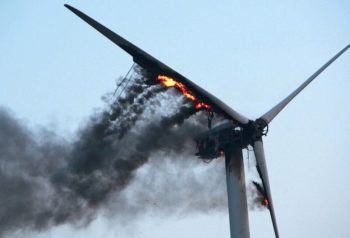
Today’s decision was the first test of whether the newly proposed European Green Deal — which promises to totally overhaul the continent’s economy — might turn into real action on climate change. Just one country, Poland, was the hold-out on the deal.
The Council released its final conclusions that said that while it supports the 2050 goal, “one member state at this stage cannot commit to implementing this objective as far as it is concerned, and the European Council will come back to this in June 2020.”
The outcome in Brussels today signals a tough road ahead to secure commitments on climate action not only from European nations but from other big polluters as well.
The new president of the European Commission Ursula von der Leyen just released the EU’s Green Deal on December 11, a sweeping package of policy proposals aimed at drastically reducing emissions by 2050.
Her announcement followed the November declaration by the European Parliament of a “climate emergency” — a phrase that activists with Greenpeace hung from the building where the Council met in Brussels.
Unanimous endorsement of the 2050 goal by the European Council today was supposed to set the stage for a green transformation in Europe and encourage changes across other parts of the world.
If the goal had passed unanimously, Europe would have become the biggest economic bloc yet to set a goal of becoming carbon neutral by 2050 — meaning it would have nearly eliminated planet-heating pollution from burning fossil fuels and drawn down any remaining carbon it releases.
That’s a target necessary to save lives and avoid the most catastrophic effects of climate change, according to scientists on the United Nations Intergovernmental Panel on Climate Change.
The United Nations climate conference wraps up in Madrid on December 13th, where activists and delegates are pushing countries to up their commitments to reducing carbon emissions under the Paris climate accord.
The failure to come to an agreement would be a “traumatic signal,” said Neil Makaroff, European Policy Adviser for the international Climate Action Network, in an interview before the decision.
If Europe’s industrialized countries aren’t willing to make dramatic changes to slow down climate change, why should other countries? The council’s decision shows discord on climate action within the continent too.
The Council determines the overarching direction and political priorities of the European Union. “We should be very careful that the Green Deal is not already outdated the day after it has been printed,” said Makaroff.
A previous effort to get the EU to commit to net-zero emissions by the mid-century was blocked by Poland, Hungary, and the Czech Republic in June.
The effort was derailed again this week by arguments over whether to lean on nuclear energy as an alternative to fossil fuels.
Countries that relied more on coal also wanted a longer timeline and more funding to cover the costs associated with a transition away from fossil fuels.
Read more at The Verge

















Very good; Europe dodged a bullet there.
When oh when will they accept that a doubling of co2 in the atmosphere to 560ppm (from the pre-industrial level of a dangerously low 280ppm) will probably increase world temperatures by about 0.4C. ?
Poland is rich in coal natural resources, heavily relies on it, and wished to continue to do so. In the past Poland has had to be bribe to go along with other measures, but this one is obviously too far out.
China is committed to coal so if the EU thinks they can influence that nation they are living in a fantasy world. China is building new coal power plants at a record pace. Basic economics dictate using a power plant until the end of its useful life. For coal power plants that is about 40 years. Simply math shows that 2020 plus 40 is 2060 which is ten years beyond 2050.
You have to wonder how many of the other countries actually sighed (silently) in relief that Poland held out. There’s zero chance that they can get to “Net Zero” in 30 years. Even then just trying to get there will destroy their economies and with them the world’s economy. But alas there seems to be few adults in the room to point that out.
A good time to remember Lech Walensa , who stood up to Communism, and won. Congratulations, Poland.
Planet-heating pollution?? Please don’t fall for that.